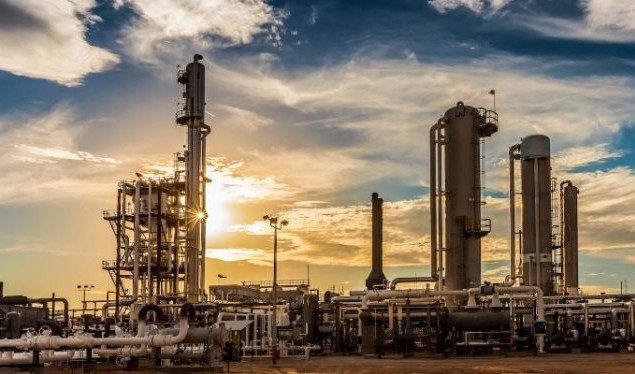Economic Survey: Fiscal deficit projected at 7% amid lower expenditures, rise in revenue
KARACHI: The Finance Ministry has estimated a 7 per cent fiscal deficit...

KARACHI: Finance Minister Shaukat Tarin has said that 9 per cent growth in the large scale manufacturing (LSM) along with robust services sector performance enabled the country post 3.94 per cent GDP growth in the first nine months of the current fiscal year.
Unveiling the Pakistan Economic Survey 2020/21 on Thursday, Tarin said that the government was concentrating on long-term growth. The Pakistan Economic Survey is an annual report on the performance of the economy, focusing particularly on the major macroeconomic indicators.
Tarin said that Covid-19 resulted in the economy’s contraction last year. However, the measures taken by the government helped the economy stabilise, resulting in improved growth performance.
“The government itself had set GDP growth target of 2.1 per cent and the IMF [International Monetary Fund] predicted even lower growth. But the incentives accorded to manufacturing and textiles, construction sectors, and interventions in agriculture helped the economy recover.”
According to the survey, Pakistan has recorded provisional growth rate of 3.94 per cent in the fiscal year 2020/21. This came on the basis of a rebound in almost all sectors.
Automobiles with the help of rising demand topped the list with 23.4 per cent growth; followed by food and beverages (11.7 per cent), petroleum and coke group (12.7 per cent) and pharmaceuticals (12.6 per cent), while electronics, engineering products and leather witnessed contraction of 20.8 per cent, 25.5 per cent and 38.3 per cent, respectively.
LSM grew 9.3 per cent based on July-March 2020/21 versus contraction of 5.1 per cent in the same period of the last year. Services sector was the worst affected by the Covid-19 impact of the last year, owing to fall in tourism, lower mobility in the transport sector (air, rail, ships and roads), lockdown inflicted complete cessation of trading activities, closure of educational institutions, event management and community services and the major burden on the financial sector because of fall in the interest rates and business financing.
The agriculture sector grew around 2.8 per cent, industrial sector registered a growth of 3.6 per cent against a target of 0.1 per cent, while services sector grew 4.4 per cent against the target of 2.6 per cent.
The minister said the agriculture sector growth met its target despite the “cotton crop getting ruined” because yields of other crops compensated for that.
“We will do interventions and take care of the poor. The poor man has been crushed in this stabilisation phase because the dreams we have shown them have been of a trickledown economy. And this can only happen when growth is sustainable and continuous for 20 to 30 years,” he said.
Tarin; however, emphasised that this growth should not be based on borrowing. The Federal Board of Revenue’s (FBR) tax collection came in at Rs3.78 trillion, registering a double-digit growth of 14.4 per cent during July-April FY21 against Rs3.3 trillion in the same period of the last year.
The government had set a revised target of Rs4.69 trillion for the revenue board, which was surpassed by more than Rs100 billion, according to the survey document. During July-March FY21, the current account posted a surplus of $959 million (0.5 per cent of GDP) against a deficit of $4.147 billion last year (2.1 per cent of GDP).
“The main driver of improvement in the current account balance was the robust growth in remittances,” it noted.
“The inflows accelerated posting a year-on-year growth of 26.2 per cent during the period under review over the same period last year and; thus, defying the general expectation of a decrease.”
The finance minister said the country’s total debt had increased nominally in the last nine months. Pakistan’s total debt increased Rs1.67 trillion in FY21 to reach Rs38 trillion. Of this, Rs25 trillion is the local debt, while around Rs12.5 trillion is foreign debt.
The Economic Survey showed that before the start of the Covid-19 pandemic, 35 per cent of Pakistan’s population, or 55.7 million people, were employed. This number decreased by around 20 million to 35 million after imposition of lockdowns.
“In July 2020, the government announced a package for the construction sector. Thus, opening of sectors in which daily wagers were working along with [the] fiscal stimulus and monetary measures made [the] economy recover,” it said. As a result, people started working again and the total number of employed people rose to 52.5 million, or 33 per cent of the population.
Catch all the Business News, Pakistan News, Breaking News Event and Latest News Updates on The BOL News
Download The BOL News App to get the Daily News Update & Follow us on Google News.